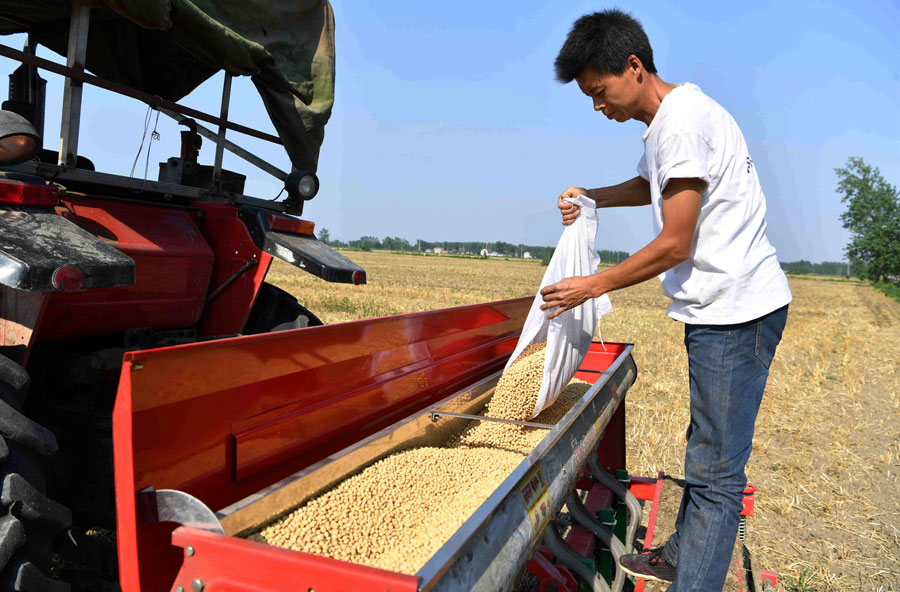Subsidies help soybean farmers grow their business






Declining demand
Last year, China's soybean imports reached 88 million metric tons, more than twice the level in 2009, but a decline of about 8 percent compared with the previous year - the first fall since 2011 - due to outbreaks of African swine fever. This led to declining demand for soybean meal, a major byproduct used for pig feed, along with a slump in imports from the US due to increased tariffs on soybeans imposed by Beijing, according to the General Administration of Customs.
Imports from Brazil exceeded 66 million tons last year, accounting for 75 percent of the total, followed by those from the US, which fell by more than 16 million tons, a drop of about 50 percent year-on-year.
Amid rising domestic production, soybean imports have continued to fall this year. A total of 31.7 million tons were imported in the first five months, a year-on-year fall of 12.2 percent, according to the ministry. Imports from the US fell year-on-year by 70.6 percent in the first four months to 4.3 million tons, the ministry said.
Yin Ruifeng, a head soybean analyst at the ministry, said soybean planting increased nationwide since the start of this year, following the release of the government's rejuvenation plan.
"The increased planting by farmers in recent years has largely been driven by subsidy policies, rather than increased profit," she said.
In addition to the northeast, authorities have started to pilot subsidies in other soybean production areas, such as some counties in Henan province, Yin said.
Compared with corn, which is also widely grown in the northeast, soybean output produces less per hectare and profits are lower, she said.
"Farmers will calculate the total profit from planting soybeans, taking into consideration government subsidies. They will start to grow more soybeans if they can earn more than from growing corn."
Ji Hongkun, deputy director of the Agriculture and Rural Affairs Bureau in Wudalianchi, Heilongjiang, said that despite the subsidies provided by the central and provincial governments, the city has also subsidized soybean farmers in recent years. This has resulted in more land being used for soybean planting and less for corn.
Last year, per-hectare soybean production in the city was 2.3 tons, compared with nearly 10 tons per hectare for corn, he said. But soybean farmers received subsidies of 4,800 yuan a hectare, more than 12 times those for corn farmers, so when subsidies are included, soybean farmers make more profit, Ji added.




















